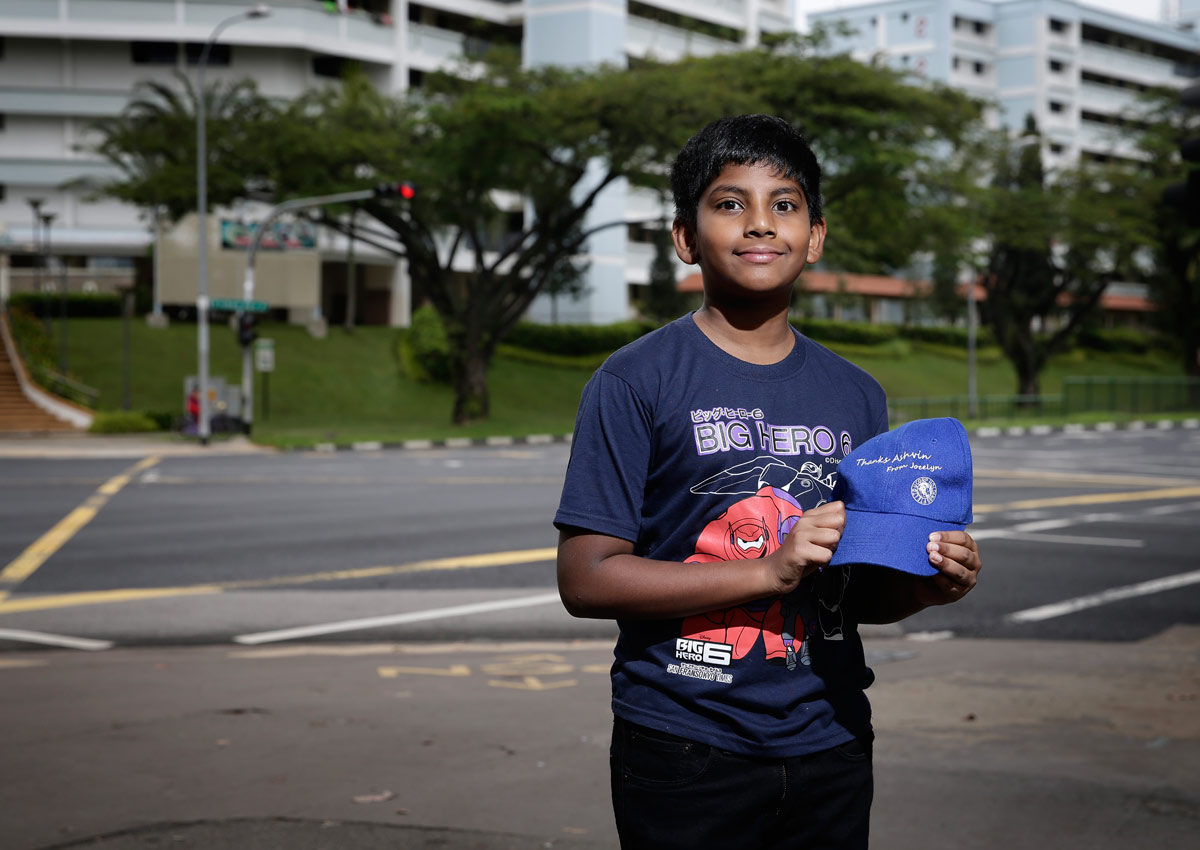The shortlist of 12 candidates is complete with these final five, and voting opens from today till next Thursday.
A mental health advocate, a boy who rushed to help an accident victim, the founder of a social enterprise, the head of research and innovation at a family-run firm, and a mechanic who paid for a stranger’s studies – these are the final five candidates in a shortlist of 12 nominees for The Straits Times Singaporean of the Year 2016 award.
The second run of the award, supported by UBS Singapore, seeks to recognise Singaporeans who have put the country on the world map, persevered through great adversity or made the community a better place through selfless acts.
In the final batch of shortlisted nominees is 12-year-old Ashvin Gunasegaran, the youngest recipient of the Singapore Civil Defence Force’s Public Spiritedness Award, and Mr Jabez Tan, 42, a former convict who now hires and helps others who have been released from prison.
Also shortlisted are Dr Radiah Salim, 54, founder of charity Club Heal; 50-year-old mechanic John Shu, who, after a chance encounter, gave about $6,000 to a single mother who needed the money to study for a diploma; and Mr Eric Lew, 43, the executive director of family-run transport engineering firm Wong Fong Industries.
The Singaporean of the Year will receive $20,000 and a trophy, while the other shortlisted candidates will each get $5,000, all sponsored by UBS.
Now that the shortlist of 12 candidates is complete, a public vote will open from today to next Thursday. The vote will be a factor in the final decision to be made by a panel of 15 judges.
The panel will include editors and senior writers from The Straits Times and also social entrepreneur Saleemah Ismail, Lim Hoon Foundation chairman John Lim and Mr Aaron Maniam, founding chairman of the National Youth Council Academy’s advisory panel.
The first 100 to vote will win a commemorative book on Singapore’s founding prime minister Lee Kuan Yew, Lee Kuan Yew: A Life In Pictures, a pictorial book that covers the breadth of Mr Lee’s achievements and also reveals the intimate moments of his personal life.
The winner will be announced at an award ceremony on Feb 6. Deputy Prime Minister and Coordinating Minister for Economic and Social Policies Tharman Shanmugaratnam will be the guest of honour.
Crash victim’s comfort – Ashvin Gunasegaran (above)
Unlike most of his friends, 12-year-old Ashvin Gunasegaran does not have Facebook, Twitter or Instagram accounts.
“I prefer to go outside more. If I’m on social media, I’ll be spammed with too many messages,” said the Yishun Primary School pupil who recently completed his Primary School Leaving Examination.
But for someone with no desire for social media presence, Ashvin became a Facebook darling in June, as people shared the exploits that made him the youngest recipient of the Singapore Civil Defence Force’s Public Spiritedness Award since its introduction in the early 1990s.
Ashvin’s sister Laava, 25, had posted a photo taken by one of his schoolmates showing Ashvin staying with and helping the victim of a car accident.
It happened on May 31 at about 1pm after two cars collided at the junction of Yishun Ring Road and Yishun Avenue 2.
Ashvin, who had been walking home from school with his friends, heard the collision.
While a group of about 10 adults gawked and snapped away with their phones, the boy’s first instinct was to dash out to the busy junction.
He insisted on checking on the victims, despite his five friends warning him that the cars were emitting smoke.
The first driver he went up to was Ms Jocelyn Yu, who was pregnant.
The 32-year-old managing director at a marketing company appeared shaken.
“They thought there might be an explosion and told me to come back, but I said that she needs my help, and you can’t watch people suffer without doing anything,” recounted Ashvin.
Having learnt from a safety talk at his school that he should try to help people in an accident, Ashvin yanked at Ms Yu’s car door, but it was stuck.
He asked a tearful Ms Yu, “Madam, are you okay?”, words that she later said offered her immense comfort.
Ms Yu said she felt helpless and desperate when she was trapped in the car.
The left side of her body was numb and she had lost her glasses, impairing her vision.
Then Ashvin turned up.
“It gave me a lot of bravery because I was really scared,” said Ms Yu, who presented the boy with a cap inscribed with his name as a token of appreciation when she met him in June.
Ashvin’s father, assistant engineer A. Gunasegaran, was surprised by the amount of attention surrounding his son’s deed.
“This is something normal that other children could also have done, it just so happened that he was seen doing it. We believe in karma, that you should help others when you can,” said the 53-year-old.
And Ashvin’s message to those who opted to gawk instead: “It was sad to see how everyone was so connected to their phones and technology that the first thing they thought of was that they needed to take pictures, instead of about caring about others.”
Drive for innovation – Eric Lew
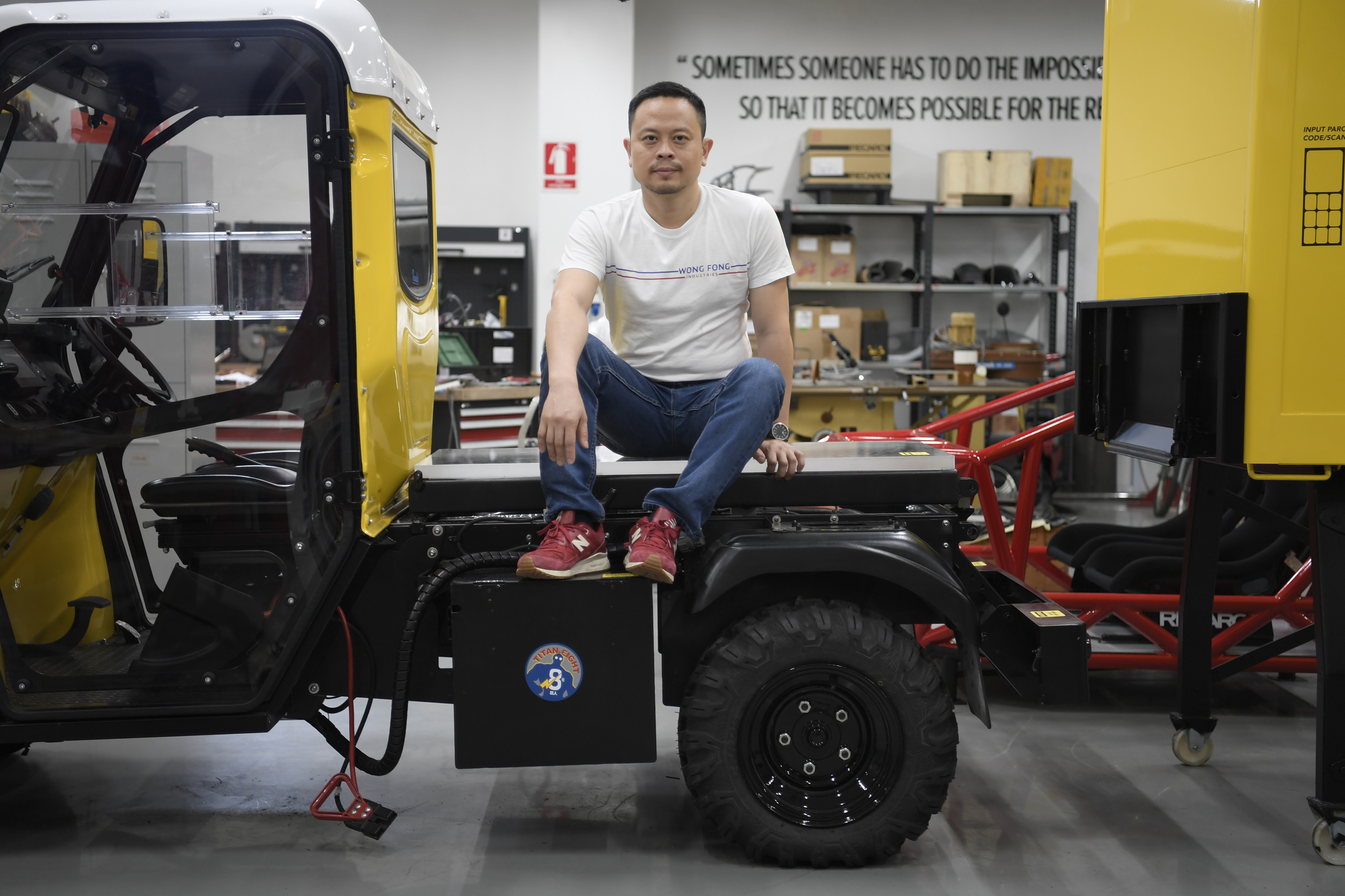
With its mix of retro furniture pieces and minimalist elements, the offices at Wong Fong Industries’ research and innovation centre look nothing like the Joo Koon building’s industrial facade.
Instead, they bear the look and feel of a workspace belonging to disruptors like Facebook and Google.
But the small and medium-sized enterprise (SME) was not always this fashion-forward. In fact, it began life in 1964 as a truck equipment servicing business run out of a zinc-roofed workshop in Upper Bukit Timah Road.
Today, it not only sells, designs and services equipment such as trucks and cranes for construction, logistics, waste handling and military uses, but it also wants to be at the forefront of technology.
This is mainly due to its executive director, 43-year-old Eric Lew, who wants the company to stay on top of trends that will shake up transport engineering, including electric vehicles.
The impassioned Mr Lew has tried his hand at drama and other creative projects as a social services programme executive when he experienced “an early mid-life crisis” in his late 20s and quit his job as an auditor.
The youngest of four children, of whom two others are also at Wong Fong, Mr Lew found his groove in business development when he joined the family company 13 years ago. In 2013, he mooted the setting up of the Wong Fong Research and Innovation Centre (WFRIC), to work on new products outside of its core services.
Next year, Wong Fong will debut Singapore’s first electric supercar, a project undertaken in partnership with British F1 giant Williams Advanced Engineering, at the Geneva Motor Show. The Dendrobium, named after an orchid, has a top speed of 300kmh and is designed by Vanda Electrics, a WFRIC spin-off.
WFRIC also wants to help other companies develop new products through a “hardware accelerator” that Mr Lew hopes to launch in the middle of next year.
The vision is to create an alliance among hardware firms to pool resources and prototype commercially viable products, such as self-driving logistics vehicles, that can put Singapore on the map.
“We’re still an SME and our annual budget is limited. But if there is a consortium, we can come up with a framework for innovation so that other SMEs can benefit,” said Mr Lew, who plans to provide mentorship and other resources such as educating companies on how to identify industry trends through the accelerator.
Engineering has the power to change people’s lives, said Mr Lew. With more international companies moving research and manufacturing back to home base as new technologies reduce the need for outsourcing, it has become even more important for Singapore to make its own products to stay relevant. “Imagine if we are able to create many products and export it, then we can become an even more powerful economy and country.”
Helping ex-offenders – Jabez Tan
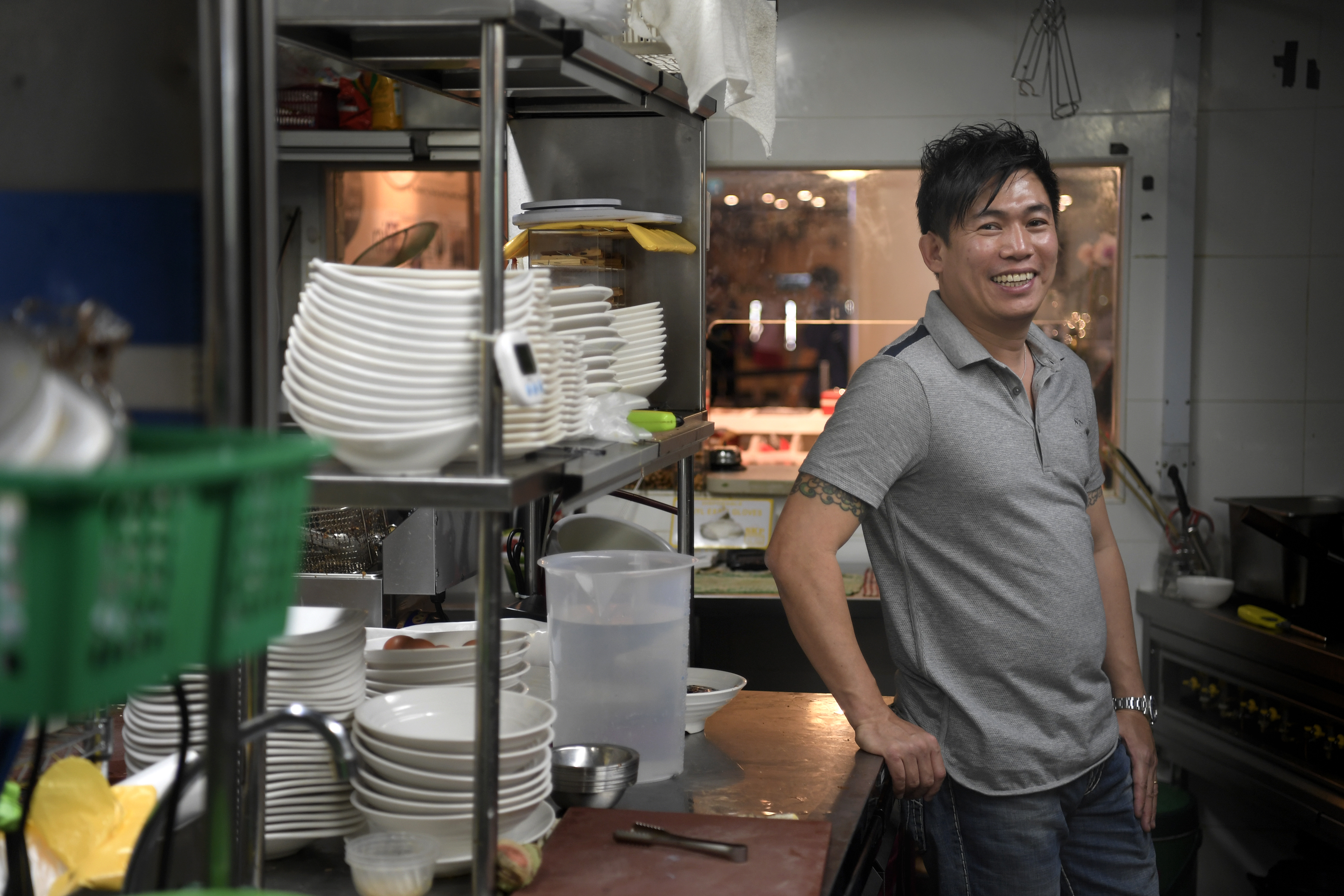
He was an incorrigible gangster who was not afraid of rumbling with rival triads, and thought nothing of robbing a woman at knife-point when he was only 17.
But when he was spurned by a potential employer because he had spent a year in prison for stealing, Mr Jabez Tan found he was not too hardened for tears.
Mr Tan, who was then 20, had interviewed for a job in a car dealership. The interviewer recoiled when he heard he was a former offender. “It’s the classic response. They’ll say go home and wait to hear back from them, but I never did. It really hurt me.”
A flurry of similar rejections followed when he tried to find sales jobs in between the 13 years he spent in prison for drug-related offences. Throughout, he never forgot how that first rejection felt.
So instead of waiting in vain for an offer, Mr Tan set up his own bak kut teh stall in 2011 with his savings and a loan from his parents. By then, he had had four years in a halfway house. Mr Tan found he had a nose for business and Soon Huat Bak Kut Teh grew steadily. It now has five outlets, including a newly opened restaurant on the second level of Chinatown Point that also sells other local dishes.
Mindful of the difficulties faced by former offenders in getting jobs, Mr Tan decided from the start that he would use his business to give them a helping hand.
Run as a social enterprise, Soon Huat has 40 staff of whom half are former offenders. Two years ago, the brand was franchised to Indonesia. It is now in talks with Chinese investors to open eateries in Shanghai.
Mr Tan, now 42 and a father of two sons, aged two and four, said he changed after he found religious faith.
He is more than just an employer to his staff, who include young people at risk and single parents. Food and rent are paid for, and he chips in for necessities like children’s allowances or transport fees if someone is in need. Every month, the trained prison counsellor also holds mentorship sessions for his staff.
More than 100 former offenders have benefited from Soon Huat’s programmes, with some staying three to six years before moving on to other jobs.
Mr Tan acknowledges it is an uphill battle keeping his staff away from a life of crime and drugs. But he never stops believing in them, even when they relapse time and again. “Some fail us, some talk bad about us, but even if we help just one person, it’s good enough.”
Mr James Giam, 48, the head chef at one of Soon Huat’s outlets, has been working there since 2013 but went back to jail thrice for drug offences. “I caused so much trouble for Jabez, but he never once gave up on me and believed that I could change,” said Mr Giam, who has kept clear of alcohol and his former addictions for over a year.
Mr Tan hopes to grow the company, but it is not all he wants. “We don’t want people to think that ex-offenders are always just beneficiaries. I hope that when they become strong, they can contribute to society and also become their own bosses.”
Life-changing kindness – John Shu
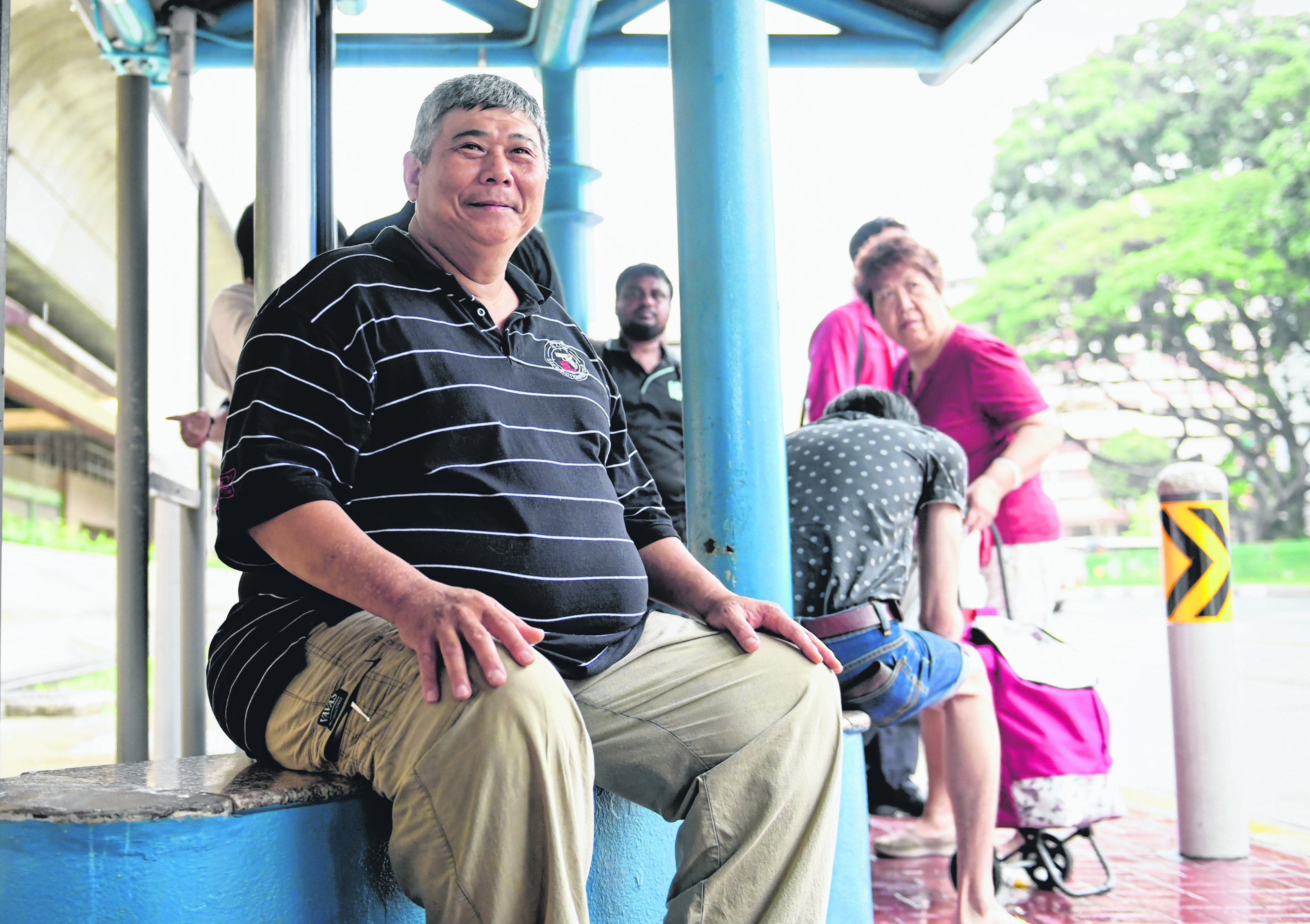
Mr John Shu, 50, earns just over $2,000 a month working as a mechanic for the Traffic Police.
But when he struck up an unlikely friendship with a former offender – who spoke to him about pursuing her education to better her lot in life – he did not hesitate to give her three months of his salary to pay for her school fees and other expenses.
Recalling the encounter, Mr Shu said he and two friends were on their way home from Yishun after a meal in late 2013.
Though they usually rode motorcycles, that day, they had to take the bus instead as their motorbikes were being repaired.
Ms Jaycie Tay, now 32, was on her way back to her halfway house in Sembawang – where she was finishing her 18-month sentence for drug offences – after attending a floristry workshop.
Mr Shu said: “She was carrying a big vase of flowers, and her friend had a bouquet in her hand. It looked quite out of place on the bus, and my friends started joking with her.”
A friendship blossomed, and both of them started meeting regularly.
Ms Tay was introduced to drugs by her friends as a teenager, dropped out of school and was jailed twice for drug offences.
She was divorced twice and had four children. But she was determined to get her life back on track.
She knew she would have a better future with a diploma but did not have the money to pay for school.
Mr Shu, who himself has two children aged 19 and 22, was moved by her plight.
He said: “She was close to tears when she talked about her past, and she did not have anyone else who could support her. Every time I met her, she said she wanted to study.
“I did not see her as someone who had gone to prison before, but just as another human being who needed help.”
When he offered to fund her studies, she decided to enrol at the Kaplan Higher Education Institute after she finished serving her sentence.
Eight months later, in December 2014, she graduated with a diploma in marketing management.
Mr Shu said: “She said she would pay me back but I told her to concentrate on upgrading herself first.” He told her that he and his wife, a hawker, had enough for themselves.
Naysayers questioned Mr Shu’s motives, and his wife initially misunderstood their friendship, but Mr Shu put her mind at ease.
“I see her as a sister,” said Mr Shu, who saw the potential for Ms Tay to do well in life.
“I’m illiterate, and I would rather someone else take this chance to further their education.”
Last month, Ms Tay started a part-time course for a bachelor’s in business studies in management, with an award from the Yellow Ribbon Fund Star Bursary.
The degree is awarded by University College Dublin.
Ms Tay, an administrative assistant, said she still finds the scale of Mr Shu’s generosity unbelievable.
She said: “Without him, I wouldn’t know where I would be. Now my life has been transformed, and I’m living a better life.”
Healer of minds – Radiah Salim
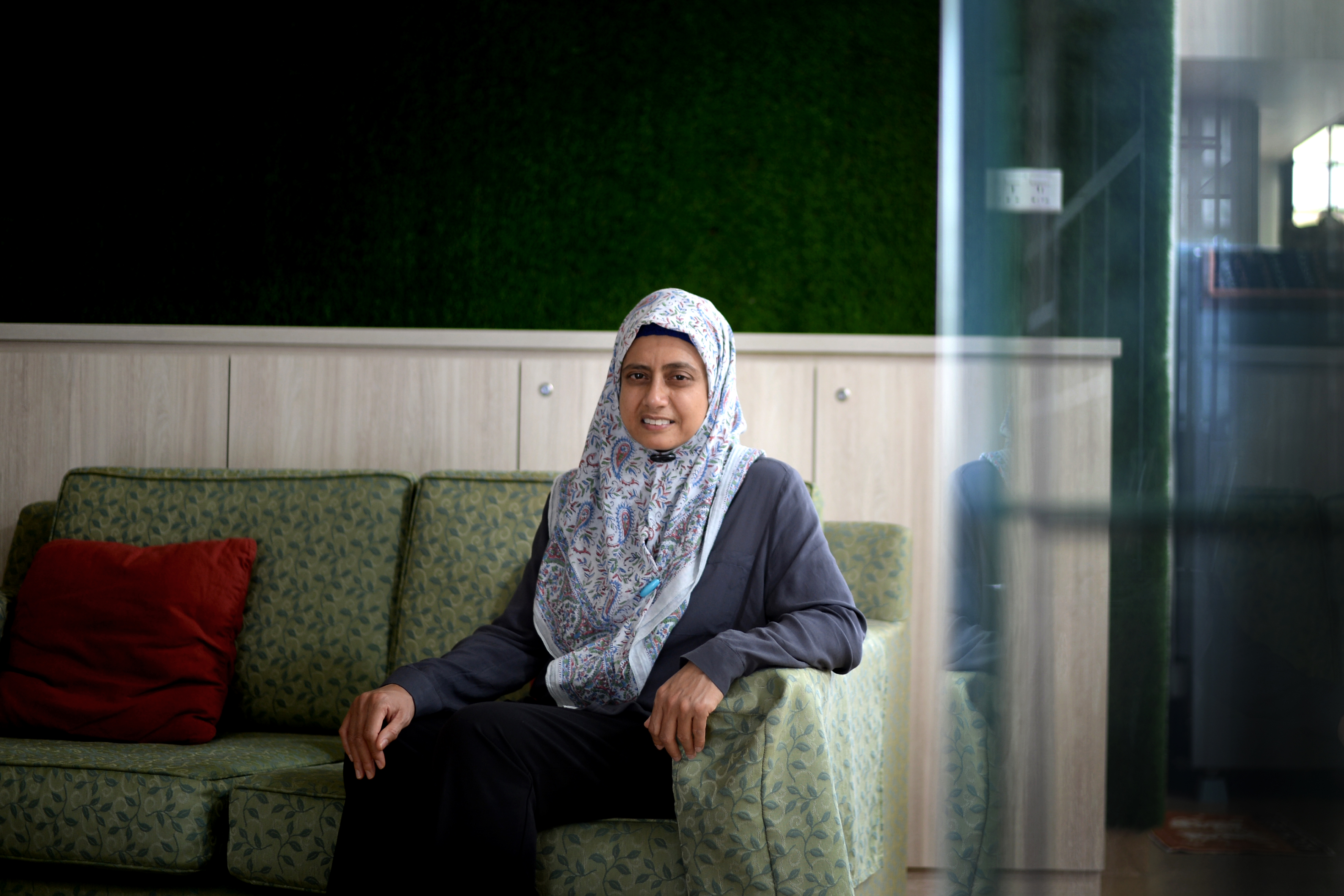
Dr Radiah Salim loves her job as a locum family physician, tending to patients’ physical ailments so they can get better and go about their daily tasks.
Her other passion lies in raising awareness about invisible conditions that afflict the brain, particularly mental illness. In 2012, she founded Club Heal, a charity that provides support for those with such issues.
Having received Institution of a Public Character status, it now has three centres here and numbers Speaker of Parliament Halimah Yacob among its patrons.
Since 2014, it has helped over 650 people through its programmes and home visits.
Dr Radiah, 54, the seventh of nine children, grew up with an elder sister who had schizophrenia.
There were other family members who succumbed to mental illness – her sister’s son, Amman, began to show symptoms similar to his mother’s when he was 18 and, in 2000, leapt to his death at 23.
In 2011, a second cousin with depression and bipolar disorder committed suicide.
The incidents prompted Dr Radiah to act on plans to start Club Heal.
“Knowing what I know, I feel I should be a mental health advocate. You don’t want similar tragedies happening to other people.”
Formerly a resident medical officer at the Institute of Mental Health, she wanted to reach out to the Muslim community in particular. She noticed many Muslim mental health patients tend to relapse after being discharged, as they do not go for follow-up care offered by organisations such as the Singapore Association for Mental Health.
Her work involves educating patients and caregivers about mental illness, as well as empowering patients through rehabilitation programmes and support groups. Her family was not ashamed of her sister’s illness, but they did not understand it well. Only when she studied medicine at university did she realise that what they had dismissed as signs of laziness were actually symptoms of illness.
Dr Radiah recalls a patient she visited in 2013, who went into depression after having lost her husband and mother in a year. “She didn’t want to eat and had to be tube-fed.”
A few months after making three home visits, Dr Radiah bumped into the patient’s daughter, who said joyfully that her mother had started to come out of her depression and begun eating again. “That was really rewarding. I realised that when you help people with mental illness, you help their family members as well.”
She takes pride in the fact that eight of Club Heal’s 22 staff members are people with mental illness; four are its former beneficiaries.
Ms Nur Hafizah, 24, who has schizoaffective disorder, became a programme executive after joining Club Heal’s programmes in 2014. “I had low self-esteem and was nervous about joining, but they were caring and made me feel comfortable about sharing my problems.”
Ultimately, Dr Radiah hopes to see rehabilitative organisations like Club Heal become redundant.
“I want the stigma associated with mental illness to be completely eradicated so that all people will know what to do, and will seek help at the earliest signs of mental illness so they can recover,” she said.
yuensin@sph.com.sg

This article was first published on December 25, 2016.
Get a copy of The Straits Times or go to straitstimes.com for more stories.
